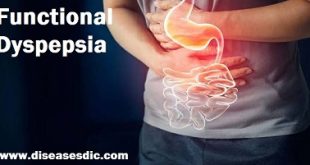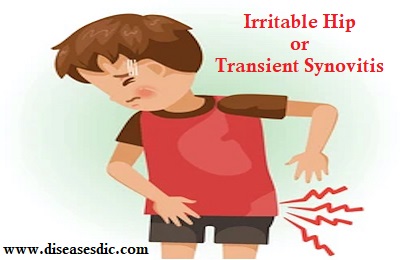What is intestinal metaplasia?
Intestinal metaplasia (IM) is a condition in which epithelial cells (the cells that line the stomach and esophagus) become altered or replaced by other cells, called goblet cells. Goblet cells are large, round, hollow cells that are normally found in the intestines; they should not reside in the stomach or esophagus. The function of goblet cells is to preserve and protect the intestines by producing and secreting a thick mucus layer. Many medical experts consider intestinal metaplasia to be a precancerous condition. Although the exact underlying cause of intestinal metaplasia is unknown, there is a strong theory that the cause of the condition may be linked with a specific type of bacteria—namely, Helicobacter pylori (H. pylori).
Pathogenesis of Intestinal metaplasia
Correa’s cascade is a widely accepted model of the pathogenesis of GC (gastric cancer). The first step in this cascade is the development of chronic mucosal inflammation, mediated through both polymorphonuclear cells and mononuclear cells, which can occur as a consequence of infection with H. pylori or through other environmental insults or through autoimmunity (in the case of autoimmune metaplastic atrophic gastritis). Due to poorly understood mechanisms, chronic mucosal inflammation leads eventually to multifocal glandular atrophy, loss of parietal cell mass, and loss of acidic secretory function. As atrophy progresses, replacement with intestinal-type epithelium characterized most prominently by the presence of mucin-containing goblet cells occurs.
As atrophy and metaplasia to intestinal-type mucosa progresses, generally in an antrum to corpus pattern in H. pylori induced gastritis, stomach acidity and production of pepsinogen I decreases. Dysplasia is the next step in the cascade, characterized by a neoplastic cellular phenotype with large, hyperchromatic cells and disorganized nuclei. While dysplastic cells have a neoplastic phenotype, they continue to respect cellular boundaries and lack penetration across the lamina propria, which is the defining feature of invasive carcinoma.
Causes and Risk Factors
Intestinal metaplasia (IM) is very common across the globe; one in every four people who have had an upper endoscopy (a flexible tube inserted into the nose, then down into the upper digestive system for diagnostic purposes), are found to have intestinal metaplasia. Aside from the presence of an H. pylori infection, specific factors that increase the risk of intestinal metaplasia include:
- Having a first-degree relative with gastric cancer
- Lack of vitamin C in the diet
- Smoking
- Older age (risk increases with age)
It is a condition that may be precancerous. When left untreated, the abnormal cells in the digestive tract undergo a change referred to as dysplasia. Dysplasia is the presence of abnormal cells in a tissue, which may constitute a stage that is present right before the cell becomes cancerous. The reduction of risk factors may lower the possibility of getting IM, as well as reducing the chance that these cells will progress from dysplasia to the cancer cell stage.
The progression of IM to cancer may be more likely to occur when the following risk factors exist.
- Genetics: having a family history of stomach cancer or other conditions of the intestinal tract
- Alcohol consumption
- Long-term incidence of acid reflux
- Secondhand smoke (and other toxins in the environment)
- Smoking: This lifestyle factor may increase the risk of developing many health-related conditions, including increasing the risk of intestinal metaplasia in the esophagus—known as Barrett’s esophagus. Smoking increases the rate of stomach cancer in the upper portion of the stomach, near the esophagus; the rate of stomach cancer is also double in smokers.
Symptoms of intestinal metaplasia
- People will often have no noticeable symptoms.
- Some people may develop symptoms, but these can be caused by other gastrointestinal problems, such as acid reflux or GERD. An underlying pylori infection may also cause noticeable symptoms.
- A doctor will often discover intestinal metaplasia while screening for other digestive disorders, or when taking biopsies to check for cancerous tissues in the digestive tract.
Complications from intestinal metaplasia
- Intestinal metaplasia is believed to be a precancerous lesion that may lead to gastric cancer.
- If you have intestinal metaplasia, then your risk of getting gastric cancer is increased six times
Diagnosis
In many cases, intestinal metaplasia is diagnosed when a health care provider is investigating the cause of other digestive problems (other than IM).
Because IM is so likely to be asymptomatic (without symptoms), diagnosis is not very feasible without the use of a diagnostic test called an upper endoscopy, in which a long, thin tube with a camera and a viewing platform is inserted into the mouth, through the esophagus, and into the stomach.
A histological examination (microscopic examination of the stomach epithelial cells) is also required to establish a diagnosis.
Treatment of intestinal metaplasia
If a person with intestinal metaplasia tests positive for H. pylori, antibiotics are the treatment of choice to clear up the infection. Antibiotic therapy is usually given for approximately 14 days and may include drugs such as:
- Amoxicillin
- Metronidazole
- Clarithromycin
- Tetracycline
Treatment may also include medications that lower the acid in the stomach and esophagus to reduce inflammation in tissues that endure the effects of the high acidity levels from excess stomach acid on a long-term basis. Over-the-counter drugs that reduce stomach acid include:
- Pepto Bismol (bismuth subsalicylate)
- Prilosec (omeprazole)
How does diet play a role?
- Researchers are still studying the effect of the diet on intestinal metaplasia.
- Some dietary changes might help prevent or treat intestinal metaplasia or keep H. pylori in check.
- This typically includes eating a diet rich in whole, natural foods, such as vegetables, fruits, nuts, and whole grains.
- These foods contain more nutrients and antioxidants than processed foods, which may be helpful for risk factors of intestinal metaplasia.
- Some people with intestinal metaplasia should avoid specific foods based on personal risk factors or other complications.
- People who have gastrointestinal disorders such as GERD may find relief by avoiding fried, greasy, or spicy foods.
- Cutting out these foods may help reduce the inflammation that could be damaging the stomach.
- Salty foods may also be a culprit for intestinal metaplasia. Reducing salt intake may lead to an overall better diet, which may support the prevention of intestinal metaplasia.
Prevention
According to a study in the World Journal of Gastrointestinal Oncology, gastric (stomach) cancer is the second most common cause of cancer-related death in the world. In addition, the study noted that intestinal metaplasia increases the risk of stomach cancer six-fold.1 Therefore, screening and prevention measures are vital. Follow-up measures on precancerous lesions to ensure that cancer cells have not begun to grow, and to diagnose any cancerous cell growth early on, are a key preventive component.
There is not enough clinical research to date to definitively prove that lifestyle changes are effective in the treatment of intestinal metaplasia. However, preventative treatment modalities may be prescribed, including a change of diet to lower the acid level in the stomach.4 This diet is thought to help prevent the progression of intestinal metaplasia to gastric (stomach) cancer, because chronic acid reflux and conditions such as GERD (involving an excessive amount of stomach acid) may increase the risk of abnormal cells in the stomach becoming cancerous.
Dietary changes thought to lower the risk factors for intestinal metaplasia—while possibly helping to lower the growth of H. pylori—may include;
- A bland diet (a non-spicy diet, low in fats and oils)
- A high-fiber, whole foods diet (rich in fresh fruits and vegetables, without processed, sugary, or fatty foods)
- A diet with plenty of fresh vegetables, nuts, and fruits
- A diet with whole grains (instead of foods made from white flour)
- A low-salt diet (some studies show a low-salt diet may lower the risk of stomach cancer)
 Diseases Treatments Dictionary This is complete solution to read all diseases treatments Which covers Prevention, Causes, Symptoms, Medical Terms, Drugs, Prescription, Natural Remedies with cures and Treatments. Most of the common diseases were listed in names, split with categories.
Diseases Treatments Dictionary This is complete solution to read all diseases treatments Which covers Prevention, Causes, Symptoms, Medical Terms, Drugs, Prescription, Natural Remedies with cures and Treatments. Most of the common diseases were listed in names, split with categories.








All l read on the plat form is correct.
Green vegetable is very important to be eaten cause one of my patients ate carbohydrate food e.g yam and had a serious attack.
Again there’s leaves that work on it, It”s pure greenish, yet to do much research on it.